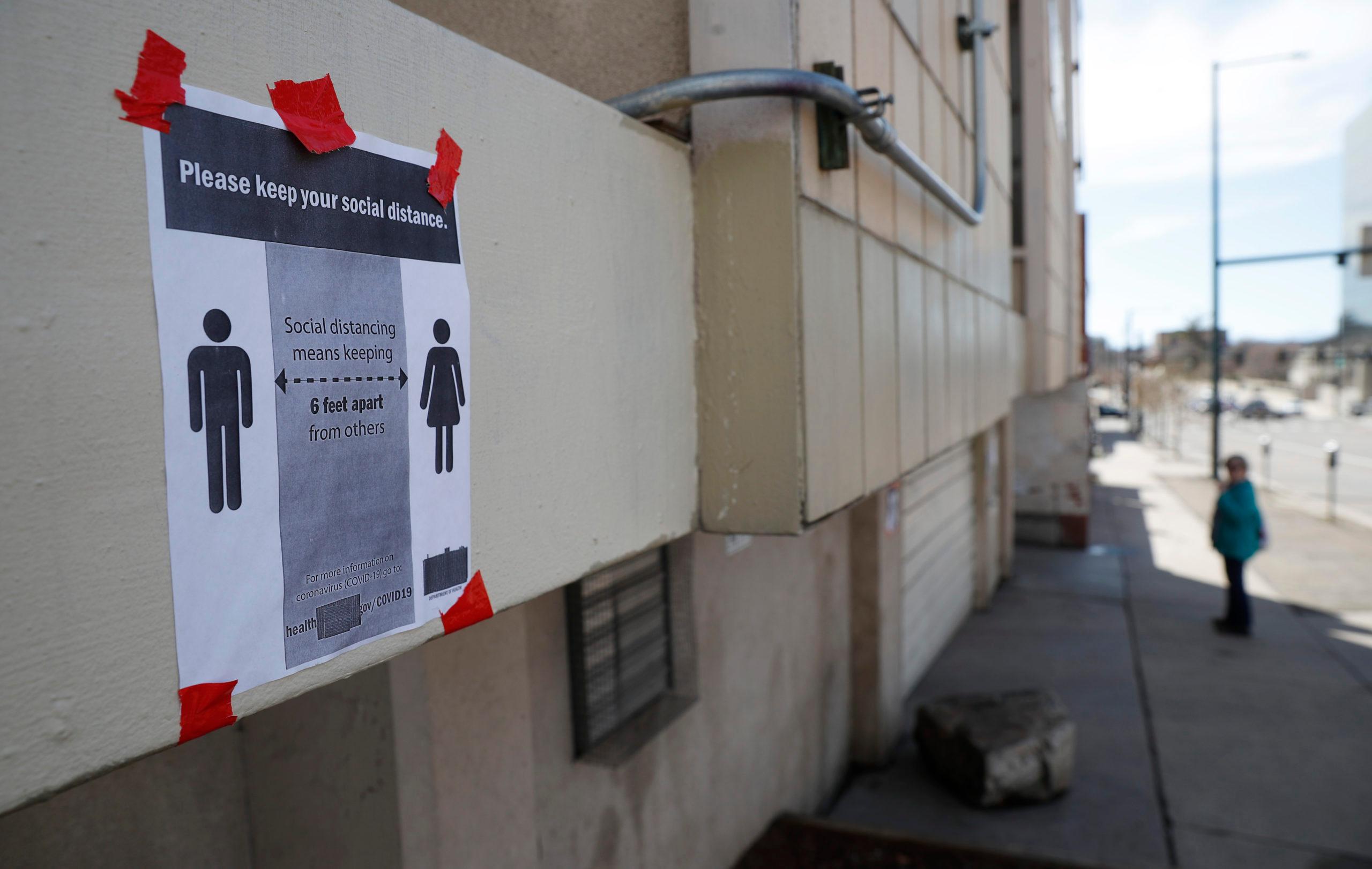
Colorado is under a statewide a stay-at-home order, but not everyone has a home to stay in. For many of the state’s homeless population, the choice remains the streets or overcrowded shelters.
Some advocacy organizations have gone to court to change that. They want the state to provide housing for those experiencing homelessness as part of its COVID-19 response.
Lynn Thompson, an organizer with the Fort Collins Homeless Coalition, would like the state to make empty hotel rooms or apartments available during this crisis.
“People can’t really social distance in a shelter,” Thompson said. “Conditions in shelters varies a lot, but people are sleeping on mats that may just be inches from each other. And even if you can get mat space 6 feet apart, in a room with a hundred people sleeping on those mats, you’re still going to have a great deal of exposure.”
She said there are hundreds in shelters in Fort Collins that share a handful of buildings or bathrooms and stand in the same lines for food or shelter check-in.
“They are just literally unable to follow the public health guidelines,” she said. The coalition has seen five presumed positive cases in their shelters, she added.
Attorney Jason Flores Williams, who represents Thompson’s group and four others, believes they are on strong legal ground. Colorado statute “demands and mandates” the Colorado Department of Public Health and Environment see after the public health of the state during times of crisis or declared emergency due to an epidemic. And if the main focus is on public health, getting the homeless into places where they can self-quarantine should be a priority.
“It’s almost eerie the way in which this statute mandates the [CDPHE] get involved,” Williams said.“Homeless people being on the streets is just an avenue toward retransmission of this disease.”
The suit, Williams said, is about requiring the state to follow Colorado law. Denver Homeless Out Loud, Solidarity Not Charity, Boulder Rights Watch and Save Access for Everyone are all party to the suit.
CDPHE said they do not comment on pending litigation.
But the state has attempted to protect the homeless population during the crisis, either through working with local communities to identify housing or looking for non-congregate sheltering, sharing social distancing best practices and guidance and standing up a Homeless Task Force.
Some communities, like Aurora, have considered providing hotel rooms that would enable those who are homeless and have been exposed to the coronavirus a place to self-quarantine.
Thompson said her group has been working with local government, too.
“But there’s a limit to what local governments can bring to bear resource-wise,” she said. “We need that state and federal step up to provide the resources so local governments can act.”








